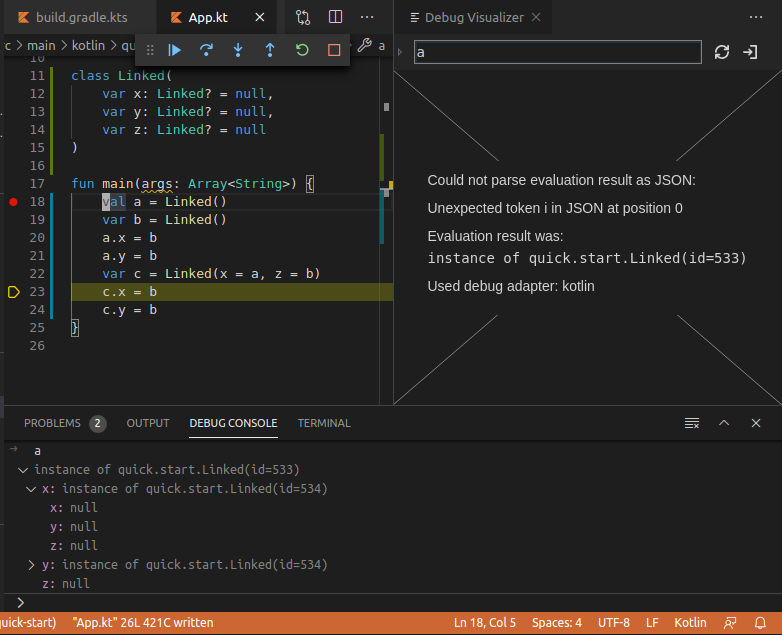New issue
Have a question about this project? Sign up for a free GitHub account to open an issue and contact its maintainers and the community.
By clicking “Sign up for GitHub”, you agree to our terms of service and privacy statement. We’ll occasionally send you account related emails.
Already on GitHub? Sign in to your account
Implement fully language-agnostic Evaluator #83
Comments
|
Thanks for your thoughts! I think data extractors cannot be implemented genericly, as they heavily rely on the semantics of the language and their data structures. I don't think the structured values of the DAP would help here. Can you further elaborate how you want to use the DAP information? |
|
I'm testing this with my Kotlin debug adapter: The debug adapter provides structural information about the objects referenced by each variable (e.g. |

Motivation
VSCode uses the Debug Adapter Protocol, which provides language-agnostic support for debugging, evaluating expressions and inspecting the object graph.
Question
Would it be possible to implement e.g. an
Evaluatorpurely in terms of VSCode's DAP client, so that this extension could support any language with a debug adapter?This would also fix issues like #63, #70, #79.
Proposed Solution
I have seen that there is a
GenericEvaluator, which currently relies on parsing the evaluation response string. Many debug adapters provide more structured information about the result however, by including avariablesReferencein theEvaluateResponse. Maybe it would be possible to use this to query the object's structure directly?The text was updated successfully, but these errors were encountered: